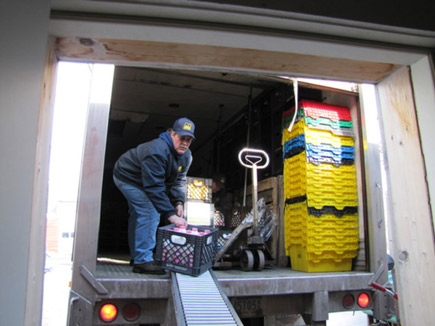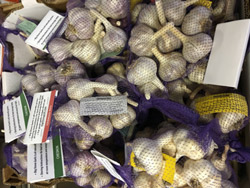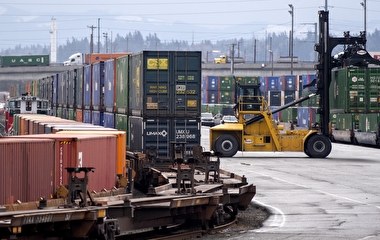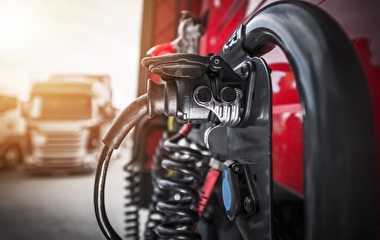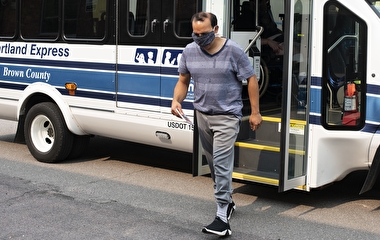they make deliveries to local grocery stores. Photo: Kathy Draeger
The U of M Extension Regional Sustainable Development Partnerships (RSDP) recently began a project that connects small- and medium-sized farms to wholesale markets using existing infrastructure.
The pilot project is the first in the nation to develop and test “backhauling” as a way to help these farms get their produce to wholesalers for wider distribution. Backhauling uses the return trip of a delivery truck to carry locally grown foods from rural grocers back to wholesale distribution centers. The long-term goal is to increase the viability, competitiveness, and sustainability of the farms through access to the wholesale market.
“We need to understand the complexities of farm-to-grocery-to-wholesale, including logistical, financial, and regulatory challenges,” says Kathryn Draeger, statewide director of RSDP, who is co-leading the study with U of M applied economics professor Hikaru Peterson. “This innovative research will help us learn how we can build systems for local food growers, help wholesalers, and support local grocers, who are such an essential part of Main Street across Minnesota.”
western Minnesota, will also participate
in the pilot project.
Photo: Naomi Olive
The two-year project is funded by a grant from the National Institute of Food and Agriculture at the United States Department of Agriculture. The research will bring Extension and the U of M together with stakeholders from across the food supply chain, including producers, grocers, wholesalers, and regulators.
One of the RSDP’s partners in this project is Mason Brothers Wholesale Grocery, a family-owned wholesale grocery distributor that serves independent small grocery stores in Minnesota and parts of North Dakota, South Dakota, Iowa, Wisconsin, and Michigan. Farmers will be able to bring their crops to local grocery stores, where trucks in the Mason Brothers fleet will pick them up and transport them to wholesale distribution centers.
“Our trucks travel 45,000 miles per week and are 60 percent full on average during the course of our routes. So we have the infrastructure to link local farmers to distribution,” says Duke Harrison, head of warehouse operations at Mason Brothers. “We can haul these products and get them back to markets without adding much on our end.”
Over the next two years, the project will test the backhauling model, starting with three crops: garlic, organic potatoes, and strawberries. Once tested, this model could be replicated in rural areas throughout the country.
